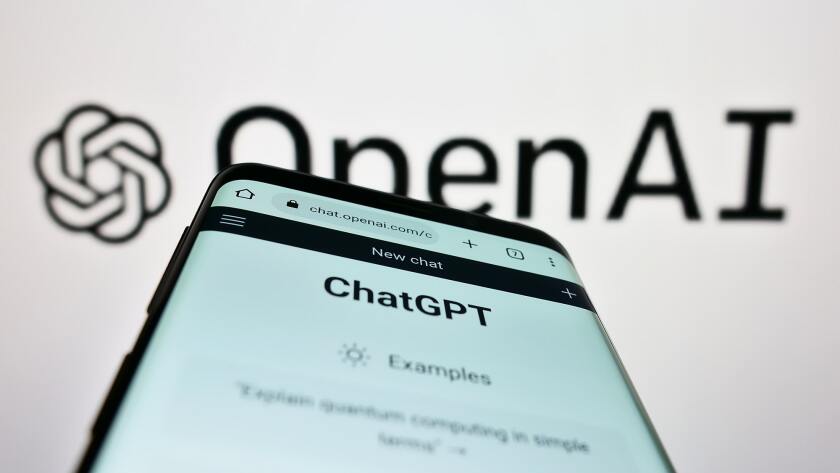Forgive me for writing about UK judges for the second time this month.
The England and Wales judiciary (nor, dare I say it, the people who sit in it) is not the most fascinating subject matter. So much so, actually, that my last article on this topic was about judges falling asleep.
But a judge’s admission last week that he had used artificial intelligence (AI) chatbot ChatGPT to help write a judgment – OK, it was just one paragraph – is a development that will intrigue those with even just a passing interest in AI and the law.
Lord Justice Colin Birss, an intellectual property specialist judge at the England and Wales Court of Appeal, revealed at a conference held last week that he had used ChatGPT. This is apparently the first known use by a judge in the UK.
Lord Birss said he asked the tool to provide a summary of an area of law he already knew, and that he felt the answer was acceptable so used it in his written judgment.
ChatGPT was, he said, “jolly useful”.
That quaint turn of phrase possibly slightly understates how most people feel about AI.
AI, we are told, has the potential to transform our lives and at the same time make many jobs redundant.
So, has Lord Birss provided a glimpse into judgments of the near future? Probably not.
‘Very disturbed’
The case does raise plenty of interesting questions, however.
Even just one paragraph of AI-generated text has already sparked plenty of panic – albeit mainly on social media, which as we know is no stranger to overreaction.
Writing on X, formerly Twitter, one legal blogger said he was “very disturbed” by Lord Birss’s comment. He went on to say that someone’s legal case is not an experiment and that ChatGPT is not a research tool or a reliable source.
An academic writing on X said ChatGPT was “not jolly useful” for him and had made up books that he had allegedly written.
All of that is probably reason enough to be concerned.
But, in fact, it is precisely because ChatGPT is not yet a reliable source that Lord Birss opted to ask it for a summary of a law he already knew rather than to produce entire swathes of a judgment for him or to answer difficult questions.
Had ChatGPT thrown up some errors, which we know it can be prone to do, the judge would have presumably caught and removed them.
In short, this was an entirely appropriate use of the tool. An early test of the waters, if you like.
The main purpose ChatGPT served in this context was simply to get the same result but faster. The text it provided, which would have been generated within a few seconds, may well have taken Lord Birss several minutes or longer to compose himself.
We live in a time where judicial resources are stretched and some parties in disputes are waiting many years for a judgment.
If that process can be sped up without comprising integrity or accuracy (which in this case it hasn’t), then why not try it out?
Copyright concerns
Lord Birss was careful and limited with his use of AI in this instance. There are, however, potential copyright concerns that could be raised by the extensive adoption of AI.
There is a risk that ChatGPT’s outputs may not comprise entirely new content and instead reproduce parts of copyright-protected work.
OpenAI, the company that launched ChatGPT, says producing copyright-protected content goes against its policies.
However, there have been examples where this policy has been seemingly overlooked or missed.
Doubtless to say, it would be both dangerous and embarrassing for an IP judge to be accused of using copyright-protected content in an IP judgment. That would be the clanger to end all clangers.
I’m confident, or perhaps hopeful, that any breach of copyright would be picked up fairly swiftly.
Lord Birss did not reveal which judgment he used the ChatGPT-generated paragraph in, or even if it was an IP case. Presumably, his reluctance to do so was because either party might be tempted to file an appeal if they knew that AI had a hand.
The most recent court judgment Birss was involved in appears to be Optis v Apple, a standard-essential patent dispute at the Court of Appeal, which published its ruling in July.
I had a quick look through that decision and couldn’t find anything out of the ordinary. Having said that, given that Lord Birss checked the ChatGPT-generated passage was acceptable and that he was one of three judges in the case, it is perhaps not surprising.
From what I can see, Lord Birss’s use of ChatGPT was an example of where AI can help judges.
In reality, it was a tiny example but one that could, in the right context, be used on a larger scale.
It will probably be some time before such AI usage becomes commonplace, and by then ChatGPT will have grown further in reliability and sophistication.
Of course, whoever uses ChatGPT, whether a judge or not, will be sure to double-check whatever results it provides and not blindly rely on it.
At least, I jolly hope so.











